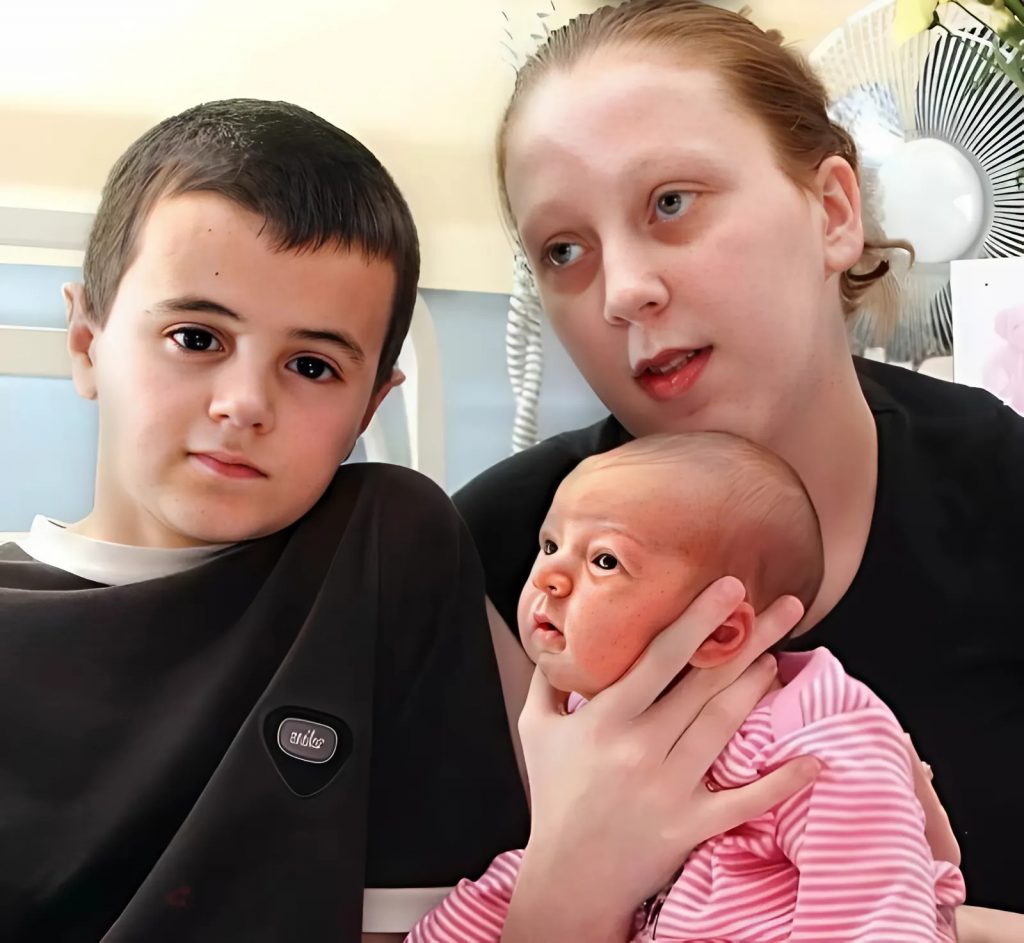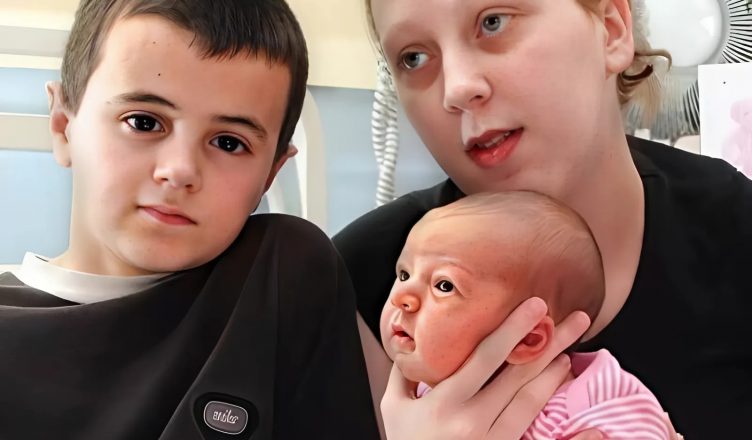In 2009, the United Kingdom was captivated and shaken by a story that quickly escalated into a national debate. At the heart of this firestorm was a pair of children from East Sussex: sixteen-year-old Chantelle Stedman and thirteen-year-old Alfie Patten. Their claim? That Alfie was the father of Chantelle’s newborn baby girl, Maisie Roxanne. The image of Alfie—just four feet tall, with a boyish face and a whisper of a voice—cradling a baby seemed almost surreal. Yet it graced the front pages of major tabloids and became a viral sensation overnight.
What followed was not merely public fascination, but an eruption of media scrutiny, moral panic, and societal self-examination. The story struck nerves across the country and beyond, as it raised pressing questions about parental responsibility, youth education, the media’s ethical boundaries, and the effects of public exposure on minors.
The Media Frenzy
Within hours of the story breaking, headlines screamed the incredulity of the situation. Phrases like “Boy Dad at 13” and “Britain’s Youngest Father?” appeared on newspaper stands across the country. Major broadcasters interviewed the teenagers and their families, often with a tone oscillating between sensationalism and concern. The pair became the unwilling faces of a discussion that spanned classrooms, churches, parliament sessions, and internet forums.

The public reaction was divided. Some responded with scorn, accusing the parents of negligence and the teenagers of irresponsibility. Others expressed sympathy, especially for Alfie, who seemed more confused than defiant. The camera often caught him in awkward silence, fidgeting with his hands, while adults around him spoke in his stead. It was evident that the situation was not just extraordinary but painfully complex.
The Paternity Twist
The story took a dramatic turn when it was revealed—after a court-ordered DNA test—that Alfie Patten was not, in fact, the biological father of Maisie. Another teenager, aged fifteen, had fathered the child. This revelation further ignited the debate: Was the media too quick to exploit a sensitive situation? Should Alfie have been shielded from public exposure until paternity was confirmed?
For Alfie, the revelation was devastating. He had embraced the idea of fatherhood, however immaturely, and had developed a bond with the baby. Now, not only was he not a father, but he had become a symbol of misjudgment and naivety—an unwilling participant in a very adult game.
A Broader Reflection
This incident was more than just a fleeting headline. It exposed profound fissures in the social fabric. First, it spotlighted the inadequacies of sex education in the UK. How could a thirteen-year-old believe himself capable of fatherhood, emotionally or practically? Alfie’s confusion in interviews, his lack of understanding about finances, child-rearing, and contraception, served as stark reminders of the gaps in youth education.
Second, the situation underscored the role of parental guidance—or lack thereof. Many criticized the adults around Alfie and Chantelle for allowing the relationship to flourish unchecked, and later, for permitting and even encouraging media exposure. Instead of protecting the children, some argued, the families had allowed the situation to become a media spectacle.
Third, the story became a lightning rod for discussions about poverty and opportunity. Both Alfie and Chantelle came from working-class backgrounds. Their story, while unusual in its specifics, was not wholly isolated. It served as a case study in how cycles of limited education, economic hardship, and absent support systems can culminate in outcomes that challenge conventional norms.
Media Ethics and Responsibility
Perhaps the most disturbing aspect of the saga was the media’s role. The intense coverage, at times invasive and unfiltered, subjected Alfie to a level of scrutiny typically reserved for adult public figures. A thirteen-year-old boy, still in primary school, was turned into a tabloid centerpiece, his face splashed across newspapers and television screens.
Questions abounded: Did Alfie have the capacity to consent to these interviews? Was he exploited for views and headlines? Did the public’s right to know outweigh a minor’s right to privacy?
Regulators and child welfare advocates called for stronger protections for minors in the media, particularly in sensitive cases involving potential legal ramifications. Some publications faced complaints, and the case was referenced in discussions surrounding the need for clearer editorial guidelines regarding minors.
Life After the Headlines
The years following the media storm were difficult for Alfie Patten. The intense public attention, coupled with the emotional upheaval of the paternity revelation, left a lasting mark. In later interviews, Alfie spoke of the struggles he faced in school and in his personal life as a result of the attention. He became a figure burdened by a past he did n
